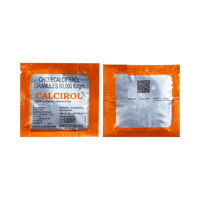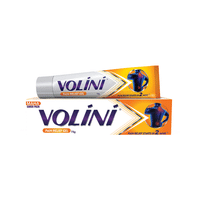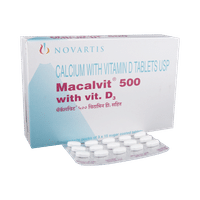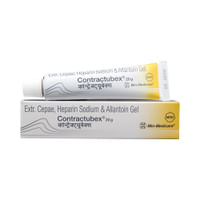Rs.258for 1 strip(s) (10 tablets each)
Composition FOR Cephotam-BVG
Betahistine(16mg),Ginkgo Biloba(60mg),Piracetam(400mg),Vinpocetine(5mg),Vitamin D3(400IU)food interaction for Cephotam-BVG
alcohol interaction for Cephotam-BVG
pregnancy interaction for Cephotam-BVG
lactation interaction for Cephotam-BVG
food
alcohol
pregnancy
lactation
Cephotam-BVG Tablet may be taken with or without food.
None
None
CAUTION
It is unsafe to consume alcohol with Cephotam-BVG Tablet
UNSAFE
The safety of Cephotam-BVG Tablet during pregnancy has not been established. There are no adequate and well-controlled studies in pregnant women, and animal data on reproductive toxicity are insufficient. Your doctor will weigh the benefits and any potential risks before prescribing.
CONSULT YOUR DOCTOR
Information regarding the use of Cephotam-BVG Tablet during breastfeeding is not available. Please consult your doctor.
CONSULT YOUR DOCTOR
SALT INFORMATION FOR Cephotam-BVG
Betahistine(16mg)
Uses
Betahistine is used for Meniere's disease. It helps to reduce the episodes of vertigo associated with Meniere's disease.
How it works
Betahistine is a histamine analog. It works by improving the blood flow in the inner ear which reduces the pressure of excess fluid there. Excess fluid can send signals to the brain causing nausea, dizziness or spinning sensations (symptoms of Ménière's disease). Betahistine additionally dampens down the nerve signals sent from the inner ear to the brain relieving the symptoms of Ménière's disease.
Common side effects
Headache, Nausea, Drowsiness, Palpitations, Confusion, Hypotension (low blood pressure), Itching, Abdominal pain, Convulsion, Hallucination, Hypersensitivity, Ventricular premature contractions
Ginkgo Biloba(60mg)
Uses
Ginkgo Biloba is used in the treatment of dementia, vertigo and tinnitus (ringing in the ears).
How it works
The compounds found in ginkgo may have a protective role in different stages of the decline of intellectual function via several mechanisms of action: vasoregulating activity of arteries, capillaries, and veins (increased blood flow), platelet activating factor (PAF) antagonism, homeostasis of inflammation and oxidative stress, and prevention of cell membrane damage causedby free radicals, and neurotransmission modulation.
Common side effects
Palpitations, Bleeding disorder, Dizziness, Gastrointestinal discomfort, Headache, Hypersensitivity
Piracetam(400mg)
Uses
Piracetam is used in the treatment of Alzheimer's disease, stroke, dementia in Parkinson's disease, age related memory loss and head injury.
How it works
Piracetam is a nootropic medicine. It works by increasing the activity of a chemical messenger (acetylcholine) which improves communication between the nerve cells. It also protects the brain and nervous system against shortness of oxygen.
Common side effects
Nervousness, Weight gain, Abnormality of voluntary movements
Vinpocetine(5mg)
Uses
Vinpocetine is used in the treatment of Alzheimer's disease, stroke, dementia in Parkinson's disease, age related memory loss and head injury.
How it works
Vinpocetine is semisynthetic alkaloid. It has a nootropic (protects nerves and the brain) effect. It inhibits the voltage-dependent neuronal sodium channels, which in turn enhances a chemical messenger (intracellular cGMP levels) in the brain. Thus, increases blood flow within the brain. This is how it prevents the destruction of never cells (neurons) and protects the brain. Thus, helps enhancement of the nervous system. It also has an antioxidant property. This works by oxidizing the free radicals (toxins) in the body.
Common side effects
Dizziness, Dryness in mouth, Flushing (sense of warmth in the face, ears, neck and trunk), Headache, Insomnia (difficulty in sleeping), Nausea, Stomach pain, Nervousness
Vitamin D3(400IU)
Uses
Vitamin D3 is used in the treatment of Vitamin D deficiency and osteoporosis.
How it works
Vitamin D3 is a form of vitamin D. It raises vitamin D levels in your blood. This in turn raises calcium levels in your blood by helping you absorb more calcium from food.
Common side effects
Increased calcium in urine, Loss of appetite, Increased calcium level in blood, Itching, Rash, Urticaria, Facial swelling, Genital edema, Dry skin, Nail disorder, Erythematous rash, Decreased prothrombin level in blood, Difficulty in swallowing, Weakness, Fatigue, Sleepiness, Headache, Dryness in mouth, Metallic taste, Nausea, Vomiting
SUBSTITUTES FOR Cephotam-BVG
2 Substitutes
2 Substitutes
Sorted By
 Rs. 230.63save 14% more per Tablet
Rs. 230.63save 14% more per Tablet Rs. 215.63save 20% more per Tablet
Rs. 215.63save 20% more per Tablet
Expert advice FOR Cephotam-BVG
- You have been prescribed Betahistine to relieve vertigo (dizziness), hearing problems and tinnitus (noise in the ear) associated with Ménière's disease.
- It can only decrease the number and severity of attacks but may not completely stop them.
- Taking it with food can help reduce stomach problems.
- Take it at the same time each day to maintain a steady amount of the medicine in your body.
- Inform your doctor if you have a history of stomach ulcer, asthma, or low blood pressure.
- Inform your doctor if you are pregnant, planning pregnancy or breastfeeding.
- Do not stop taking the medicine suddenly without talking to your doctor first.
- You have been prescribed Betahistine to relieve vertigo (dizziness), hearing problems and tinnitus (noise in the ear) associated with Ménière's disease.
- It can only decrease the number and severity of attacks but may not completely stop them.
- Taking it with food can help reduce stomach problems.
- Take it at the same time each day to maintain a steady amount of the medicine in your body.
- Inform your doctor if you have a history of stomach ulcer, asthma, or low blood pressure.
- Do not stop taking the medicine suddenly without talking to your doctor first.
Frequently asked questions FOR Cephotam-BVG
Betahistine
Q. What is Meniere's disease? Does it go away?
Meniere's disease is a disorder of the balance and hearing organs in the inner ear. The symptoms include vertigo, fluctuations in hearing, tinnitus (ringing of the ears), and pressure in the ears. Along with that, one may experience dizziness which in turn may cause nausea and vomiting. The treatment for Meniere's disease depends on various factors. Hence, an open discussion with the doctor can help to determine the best treatment strategy in your personal case.
Q. Is Betahistine effective?
Betahistine is effective if used in the dose and duration advised by your doctor. Do not stop taking it even if you see improvement in your condition. If you stop using Betahistine too early, the symptoms may return or worsen.
Q. What are the triggers for Meniere's disease?
Meniere's disease can be triggered by conditions such as stress, overwork, fatigue, emotional distress, additional illnesses and sudden drop in blood pressure. Along with that, certain foods such as dairy products, caffeine, alcohol and foods with high sodium content may trigger Meniere's disease. A 2-gram/day low-salt diet can help control vertigo in Meniere's disease.
Ginkgo Biloba
Piracetam
Q. If I do not see an improvement in my symptoms, can I stop taking Piracetam?
No, do not stop taking Piracetam on your own. Stopping it suddenly may have unwanted effects like twitching and jerking movements. If Piracetam does not improve your symptoms, consult your doctor. The doctor may suggest a slow reduction of Piracetam dose.
Q. Who should avoid taking Piracetam?
You should not take Piracetam if you are allergic to Piracetam or any of the ingredients in the medicine. Also, avoid taking Piracetam if your kidney functions are severely deranged or if you ever had localized bleeding in the brain (cerebral hemorrhage). You should also avoid taking this medicine if you are suffering from Huntington’s disease/chorea (a genetic disorder where the brain cells die quickly causing deterioration of mental and physical abilities over time).
Q. What is the correct way of taking Piracetam?
Piracetam can be taken with or without food. Swallow the tablets as a whole with a glass of water. Do not break or chew the tablets. If you find it difficult to swallow, tell your doctor as soon as possible. Your doctor may prescribe Piracetam in the form of a solution.
Vinpocetine
Q. Can Vinpocetine affect blood pressure?
Yes, Vinpocetine may affect blood pressure by causing an increase or decrease in the levels. This change in blood pressure level is only for short duration. Further, if you have any concerns regarding changes in blood pressure consult your doctor.
Q. Is Vinpocetine a blood thinner?
Yes, Vinpocetine is a blood thinner. This group of medicine prevent the formation of blood clots and the existing blood clots from getting larger. Hence, this property of Vinpocetine proves to be helpful in strokes.
Q. What are the side effects of Vinpocetine?
The side effects of Vinpocetine include nausea, dizziness, difficulty falling asleep, dry mouth, headaches, facial flushing, and heartburn. Some may experience a decrease in blood pressure or increase in heartbeat, though these are for a brief time. Prolonged use of Vinpocetine may also be associated with slight reductions in blood glucose levels.
Vitamin D3
Q. Is it better to take Vitamin D3 at night or in the morning?
You can take Vitamin D3 at any time of the day, morning, or night. However, there is limited information available about the best time to take Vitamin D3. Take it exactly as advised by your doctor.
Q. What are the benefits of taking Vitamin D3?
Vitamin D3 is important for maintaining bone health, support the health of the immune system, brain, and nervous system. It also regulates insulin levels and is also important for a healthy heart and blood vessels.
Q. How should Vitamin D3 be taken?
Vitamin D3 should be swallowed whole with water and should not be crushed or chewed. It is advised to take it with the main meal of the day to increase its absorption.























